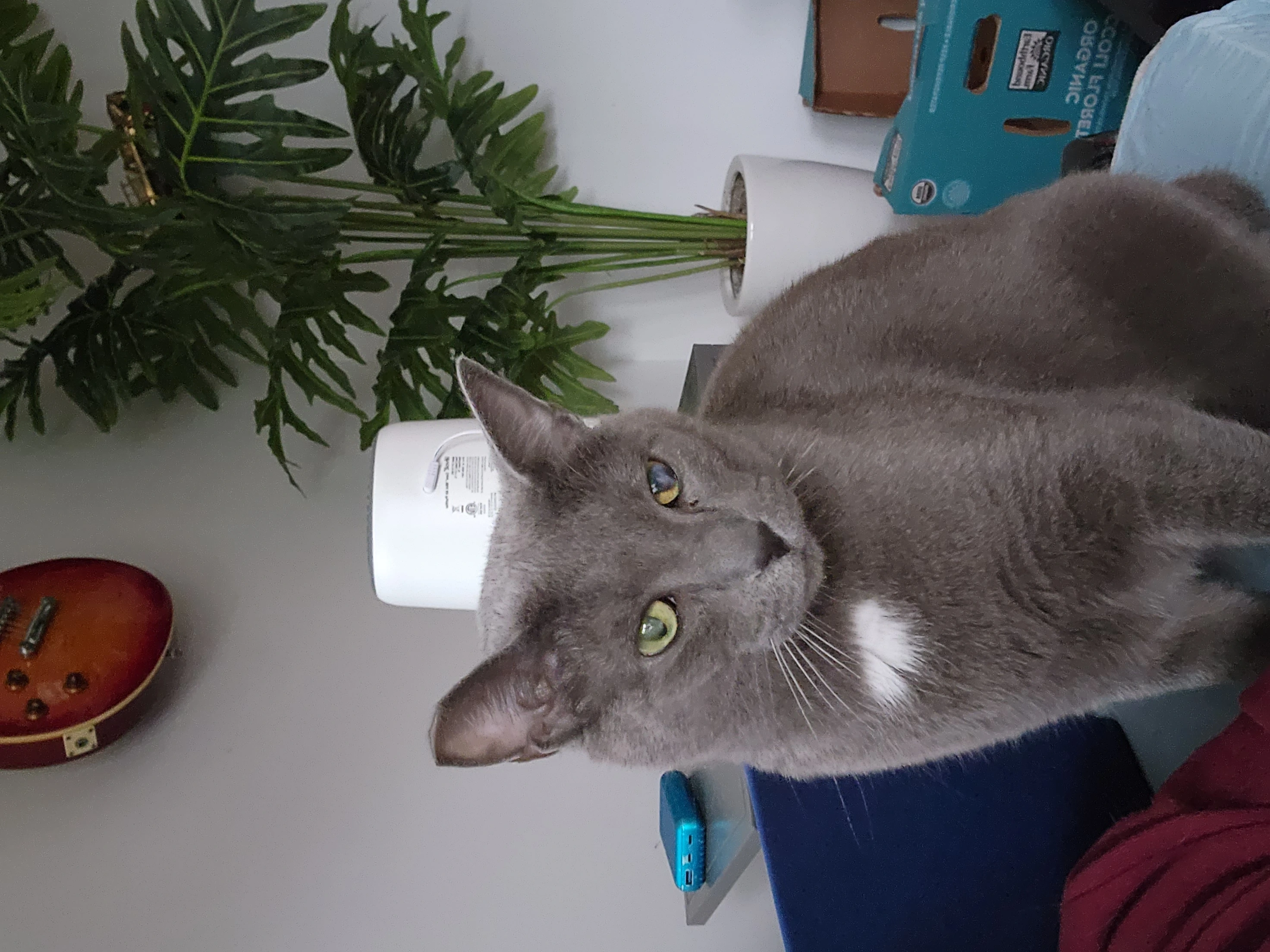Why YSK?
The first person who typed “should of” probably heard of it in real life that was meant to be “should’ve”, they typed “should of” online and readers thought that it’s grammatically correct to say “should of” which is in fact wrong and it became widespread throughout the years on Reddit.
I hope something could start to change.
I’m not a grammar nazi, but “should of” is driving me up the wall.
I know right, I know people make careless grammatical mistakes all the time, including me, which is completely fine but people outright thought that “should of” is correct and use it all the time starts to get annoying
Same! I rather see shoulda than should of.
But more importantly, where do you stand on the Oxford comma?
I strongly prefer it but it’s not something I feel is worth correcting someone on.
Oh, Dude! I’m 99% for it. On the night before my uncle’s funeral, while labeling photos for the slideshow, two of my cousins got into an Oxford comma fight. John, Joe, and Jeff. Take out the second comma. But it’s right! But it looks stupid! Fight! Fight! Fight!
Ah funerals, people really get upset over the smallest things due to all the pain from the loss. I don’t want to ever go through that again but I know it’s just a part of life. :(
Yeah. Had to do it twice in the last year. Sucks.
Damn man, I’m really sorry for your losses. I’ve experienced something similar in the past. It’s like when one person dies, more follow shortly. I feel like when people loose their loved ones, its like some peoples bodies when they are old just give up as the person they loved disappeared.
It’s mandatory in a series, only. Something is only a series of there are three. Plenty of time the cadence and diction sounds like a series but isn’t.
If the first two or last two are antecedent to one another, you don’t need the comma. Said another way, if the first or last noun is not severed from the second, you need a serial command to indicate that.
It depends on what you’re trying to say.
Don’t crash to the floor. That’d hurt.
Giving my best!
I know, for all intensive purposes it’s maddening.
That and “all of the sudden.”
Not just any other sudden. It’s THE sudden.
deleted by creator
Hard relate!
Nice one. Who’d’ve guessed.
I wouldn’t’ve, that’s for sure!
As a non-native speaker, that hurts !!!
Y’all’re taking it too far.
😱 You are triggering my fear of more than 1 apostrophes in a word
Coulda, shoulda, woulda…
now im wondering if this is actually gramatically correct or not
Yes, it is.
deleted by creator
It was the Victorians that decided double contractions and double negatives should be no-nos. Some nonsense about making language have rules like mathematics. Don’t listen to Victorians.
deleted by creator
Y’all’d’ve guessed.
(Reddit has previously informed me that y’all’d’ve is the winner in these complex contractions.)

Isn’t it actually “For Fuck’s sake”?
Only correct take here…
lol I remember reading this on Quora
For fucks sake…
just say “F.F.S.” from that point on
deleted by creator
I’m certainly no grammar freak and English also isn’t my native language but this deives me insane… Same with your vs you’re… it’s soooo easy…
deleted by creator
I pressed my break to stop the car…
Your correct about that
Yeah once you understand the concept it’s not too crazy. But it is still crazy.
Typing “should of” is a sign of failing to understand the basics of English grammar.
Eh, it’s just shifting of how written work is relfective our spoken word. It’s pretty rare for me to use a stronger “ah” sound when saying “would have” most of the time defaulting to a softer schwa sound, which sounds almost exactly how how “of” sounds. English has been changing and evolving for centuries. There’s even major epochs like the great vowel shift. Hell if Shakespeare were around today and making the drastic changes to the english language like he did back then he’d be crucified by internet prescriptivists for using English improperly.
If you’d like something a bit more modern, Mark Twain broke english rules all the time in his writings and he’s considered one of, if not, the greatest American writers.
I’m sorry but it doesn’t fully work here. ‘of’ phonetically should not be spelled with a ‘f’, so they are already using a word that is not pronounced as it is written, might as well use “would’ve”, which removes the part that isn’t pronounced as it was traditionally “ha-”, but at least it’s still correct.
They use ‘of’ because they don’t understand (or pay attention to) the grammar of what they’re saying.
They use ‘of’ because they don’t understand (or pay attention to) the grammar of what they’re saying.
Sure. Because it sounds identical. " 've" and “of” are both pronounced /əv/, hence the confusion. Native speakers write what they hear. If you ever want to stop errors like this, the only solution is spelling reform.
I never thought that these two could be pronounced the same. I pronounce of as in office whereas 've is either pronounced as in have or as in effective (or more like a mix between that and e sound and an “ö” from german) depending on how quick I want to say it.
I never thought that these two could be pronounced the same.
Yes, English spelling is very misleading.
I pronounce of as in office
That would be a mistake in all dialects of English. It is always pronounced with a /v/ sound and the vowel is a schwa. 've is also a schwa plus /v/.
Of course, if we had spelling reform, that would cause even more errors lol
English spelling errors are common because English is not written phonetically. If you fix that, you reduce the errors, not increase them. Spelling mistakes would still occur to some degree (ultimately because one dialect’s pronunciation must be chosen for the written standard) but it would still be an improvement.
Imagine if anglophone students could learn to read and write in 2 years like their peers in Spanish and German speaking countries (many dozens of others) instead of 10.
You’re forgetting the transition period where we change a standard ppl are used to, and also that it’ll be impossible to make orthography match phonics bc different accents and dialectes of english all pronounce things differently
Edit: and also I think Spanish and German speaking counties probably just have better education systems
Shakespeare did not “make” changes, he’s just a very good record of changes that had taken place.
That us just incorrect, his plays marked major shifts in the style of writing for the english language, many writers after him adopted his style and the new mechanics he was making in his plays.
https://online.maryville.edu/blog/william-shakespeare-influence/
It is not incorrect.
his plays marked major shifts in the style of writing for the english language,
True, that is perfectly in line with what I said and contradicts the statement that he "made changes. “making changes” is not the same thing as “marking major shifts”.
many writers after him adopted his style and the new mechanics he was making in his plays.
Many would imitate his style. But we also know very little about the styles that influenced Shakespeare. New mechanics? Not sure what you mean by that. He did not alter the grammar of English nor did he invent words. When people claim he “invented” words or phrases, what they really mean is that his works are the first recorded example. That is not the same thing as “inventing.”
“Should of” is bone apple tea material.
deleted by creator
I feel pain.
People who say “should of” makes me want to loose my mind
Right on queue.
right on que!
Also, pleeeaaase, someone find me that ancient image macro of a boy, maybe he had a moustache, or maybe it was drawn on, he was raising an eyebrow, and the only caption on it was “que?”. I’ve been searching for that forever.
Was it the character Manuel from the TV show Fawlty Towers, played by the late Andrew Sachs? There are plenty of images of him saying “Que?”
Haha, that’s a really good replacement until I find the one I am looking for. The image I’m thinking of really showed a boy, not a grown man.
Even as a non native speaker “should of” feels really weird to me, it just doesn’t make sense. Is this a mistake English speakers do as well?
Pretty sure it’s actually one of those mistakes that is made more often by native speakers than non-native speakers
It’s like theyre/theire/they’re - in my experience it’s mostly native speakers confusing them.
Yeah, I’ve seen have in textbooks way more than ’ve and it’s baked into my brain… This mistake only happens if you hear the word before seeing it written.
It’s because “should’ve” and “should of” are pronounced the same. It doesn’t make sense because they’re just writing what they hear instead of thinking “I’m using the contraction of the auxiliary verb ‘have’”…
It’s because you’re a non native speaker. Should of is a phonetic mistake that can be traced back to repeating words you hear over and over again before you know what they actually mean
deleted by creator
I’ve seen “should of” in a book before. I think it was house of leaves, that had a bunch of them in it but it was only from one characters perspective if I remember correctly, so it might have been a stylistic choice. Still recommend the book though.
I have that book, but never read it. Too many foot notes, for one, some of them could of been chapters by them selves! (Sorry)
Is it a “correct” or easier way to enjoy the book? Is it meant to be “different” in that way? I’ve only heard good things about it, so really would like getting to it. My go to time wasting social media is no more a part of my life, so now at least I have the time…
The footnotes are pretty much their own story. The book is written like a textbook so it might be quite hard to read sometimes, and it is sometimes boring but still somehow interesting. I don’t think there really is a correct way of reading it though, I mean, you could skip the footnotes but then you’d only kind of get 1/3 of the story. There are footnotes and then there are footnotes of the footnotes.
Hehe, ok, so I wasn’t wrong about it being different and kind of hard to digest. Maybe I just need to keep my own notes on the footnotes and footnotes footnotes to remember what belongs where in the story 😅
House of Leaves is as much a puzzle as it is a book. I wrote in the margins A LOT as I was reading/solving it. FYI, there are more fake references than real references, but some of the references are real.
I could care less.
My in-laws and I have a Signal group where we share fun spellings and pronunciations. We call it “udder mayham.” It’s fun.
I could care less.
This one is popular.
udder mayham
That’s an eggcorn right?
I could care more or less.
This one in particular gets my goat
Awesome! That means you’ll make a mental note and avoid making the mistake in the future?
That, or this is clearly a potentially intentional (or unintentional) misuse of the saying “I could’nt care less”
Crazy thing is, it’s getting widespread acceptance, and will probably accepted as grammatically correct in a few years.
A bit like how putting “would” in a third conditional if-clause has become standard in US English (“We wouldn’t have been late if we would have taken a taxi”).
I know language evolves but it doesn’t stop my left eye from twitching whenever I hear it.
Not until the definition of the word “of” changes. It is not a synonym for the word “have,” nor will be anytime soon.
Perhaps, when speaking, accent, mush-mouthed laziness, or plain ignorance will confuse “should have” and “should of”, but one is objectively correct, and one is not.
Not until the definition of the word “of” changes.
Well that’s what’s happening here isn’t it. It’s a word that is potentially gaining an additional use as a result of reanalysis. Whether it sticks around long term remains to be seen, but language is defined by usage and it’s foolish to pretend there’s such a thing as objectively correct. Already the use of the verb ‘to have’ to form the perfect in this case is quite different from it’s other meanings related to ‘to possess’. And that’s not even getting into you describing nonstandard usage as the result of ‘mush-mouthed laziness’ which is a whole nother can of worms.
Given the number of offenses I see in books and magazines, I’d say that the only thing left is for the descriptivist grammarians and lexicographers to record it.
language is full of idiosyncrasies like this (my favorite is an ekename -> a nekename -> a nickname. see Wikipedia). it’s perfectly conceivable that should have would be fully re-analyzed in speech like that, so the proper form of the verb to have would become of after should
Same deal with the word “Apron”. It started out as napron, so people would say a napron which turned into an apron
ITT: Awful linguistics takes
Golly, I should of known that
- Golly, eye should of noun that
Damn I should of known this
deleted by creator
Downvoted 🥵
deleted by creator
Damn, and here I thought Redditors were the only ones who couldn’t detect a joke
Lmao right? This is obviously a joke




























